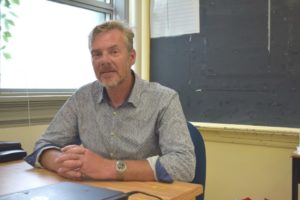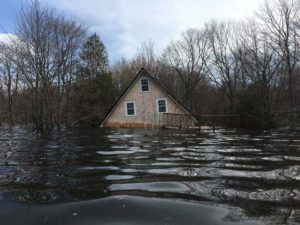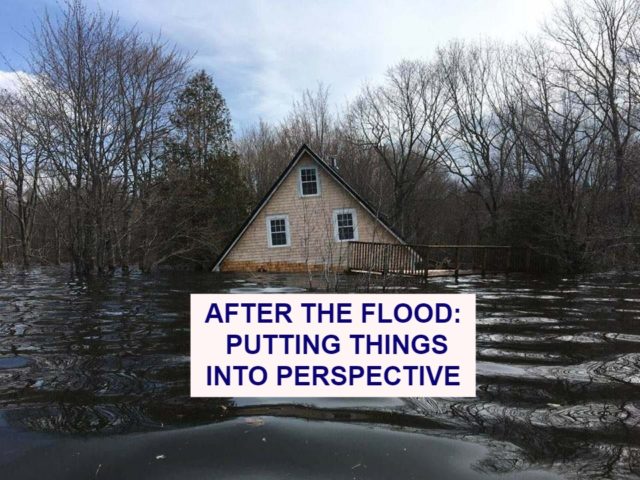Peter Larsen’s family cottage near Belleisle Bay was destroyed in 2018. Soon, that didn’t matter.

Driving to Peter Larsen’s family camp near Belleisle Bay in June, 2018, was like returning to a war zone. Debris was scattered all over the roads.
The high school teacher found items from his childhood littering the surrounding area.
“In fields far away from the camp,” Larsen said.
Since 2008, water entered the cottage almost every second year, he said. Finally, in May, 2018, it was too much.
“It completely knocked the camp off its post, set it on its side and it was beyond any repair,” he said.
But while the camp was a write-off, something else happened that put the damage into perspective.
Larsen’s mother had a stroke, something they believe is related to the stress of her own home flooding.
“She actually believed, following the stroke, that she was trapped in a basement in a senior’s home in Gagetown and couldn’t get out,” he said.
So, while his family could see what was happening to their cottage on the news, Larsen said it didn’t matter.
All his focus went into worrying about his mother and how to take care of her.
“The camp become some material thing that we didn’t need.”

Climate change and extreme weather events it intensifies have been shown to negatively impact New Brunswickers’ physical and mental health, a new report by the Conservation Council states.
As the report’s analysis shows, the public health threats of climate change will worsen over the next 30 years without serious intervention to reduce the carbon pollution fueling.
Larsen’s mother survived but is paralyzed on one side. Now, with a few years of distance from the flood, he can reflect on what happened.
He said the cottage was a place where he swam and rode horses throughout his childhood, giving him, “the best summers I think a person could have.” He describes being there like stepping back to the 1800s.
Still, it’s those affected by the floods that mattered most to him. In the end, he didn’t mourn the property.
“It sounds so corny, but it’s all about the health. We can do without the camp but it was mom that was the big concern. I think that really put that into perspective.”
This is part three of our new series: After the flood: how climate change and the extreme weather it’s fueling affect New Brunswickers’ physical and mental health
Recommended links:

